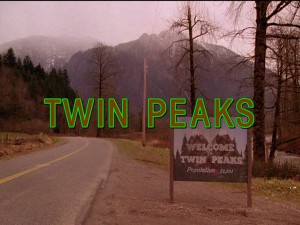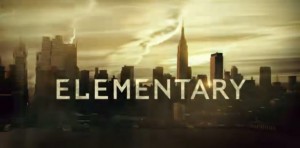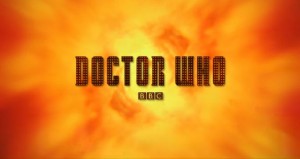DVD First Watch: Twin Peaks – “On the Wings of Love”
 “Coincidence and fate figure largely in our lives.”
“Coincidence and fate figure largely in our lives.”
A chance bit of observational skills brought Log Lady and Daddy Briggs to the sheriff’s office together. A chance bit of doodling brought their tattoos together into one symbol. A chance bit of conversation led to from that symbol to Owl Cave. And a little bit of chance led to the gang finding some hidden doohickey in the wall of said cave.
NOT TO MENTION the fact that, based on his secret files, Windom Earle was involved in investigating UFOs back in the day. That right there is a DUN DUN DUUUNNN moment, y’all.
I don’t know whether to hope or not that Earle’s bit of mischief left him buried in the cave. On the one hand: hahaha, serves you right, you mental bastard! On the other hand: no more disguises. DILEMMA.
This episode may end with spelunking and secrets, but it begins with a whole lot of lovin’ – the good, the bad, and the ugly.
- October 20, 2012
- Kelly
- DVD First Watch
- Twin Peaks


 I did not realize how much I’d missed having an episode of Elementary last week (damn you, election!) until this week’s rolled around. I – I kind of love this show, you guys. Who saw that one coming?
I did not realize how much I’d missed having an episode of Elementary last week (damn you, election!) until this week’s rolled around. I – I kind of love this show, you guys. Who saw that one coming?